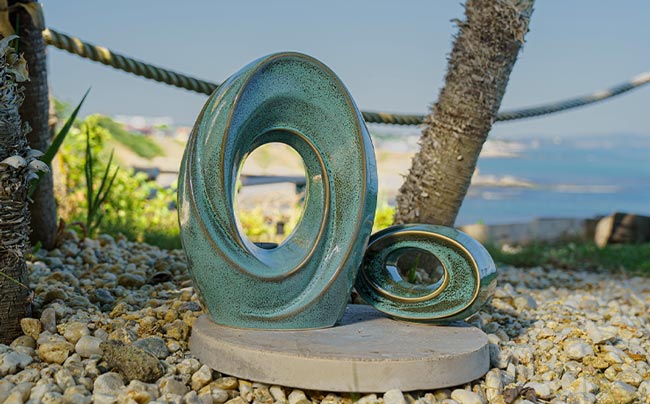
What to Know Before Writing a Will
Here at Urns For Angels, we care about your health and wellbeing. We care about you and your family. This is why we like to help you by providing you with information and comprehensive guides to help you through difficult times.
In this article, we will be advising you in a quick guide on what to know before writing a will and what to do when writing one.
Before: Do I need a will?
In most circumstances, it is very important to write a will in order for you to decide what happens when you die. For example, if you are a parent and you have any children under 18, you can state who you wish to be their legal guardian if anything happens to you. If you do not have a will written, the future of your children will be left to the courts to decide.
In terms of assets, if you do not have a will then this may cause family disputes or some assets may even be unbeknown to them. Assets will be divided following traditional laws to decide who gets what, and may not follow the choices you would have made.
Do I need legal advice?
Many people believe they do need a solicitor in order to create a legitimate legal will, however, you may end up paying for legal advice you do not need.
Writing a will can be simple and straightforward, especially with the tools available at your disposal on the internet. For example, Farewill.com have an online will writing service which allows you to efficiently put your wishes into writing.
During: What do I need to include?
1. Appoint legal guardians
Even if you don't have children under the age of 18, this clause can also extend to pets.
2. Make a list of who you want to benefit from your estate
This is one of the most straightforward steps. You’ve probably already thought about it before reading this guide. Who will you leave your estate to? It usually consists of your partner, spouse, civil partner, children, or other family members.
Alternatively, you might leave your estate to close friends or charities.
These are known as your beneficiaries. Additionally, you may want to think about protecting your beneficiaries from third parties or themselves by including a trust in your will. Trusts allow the owner of assets to distribute the asset for the benefit of another person or people without granting them control over the asset whilst it remains in the trust.
3. Compile a list of your assets and roughly what you believe they are worth
The easiest assets to value are your savings and other obvious valuable objects such as art, jewellery or other heirlooms.
Other things that might be harder to value as they often fluctuate might induce your pension, your business, stock market investments, or property.
Finally, you might want to specifically list any sentimental items even if they have no significant monetary value as these can cause family disagreements.
A note to make here is that the inclusion of your pension might depend on the rules of your pension scheme. Additionally, make sure your pension scheme knows who you want your pension to go to and don’t just rely on the statement you have made in your will.
4. State how you want to split your money and property
There are five types of legacy you can leave to your beneficiaries.
- Pecuniary Bequest - leaving a fixed sum e.g. I leave £X to X.
- Specific Bequest - leaving a specific item you own e.g. I leave my jewellery to X.
- Residuary Bequest - leaving a percentage of whatever you estate it worth after aunty debts, costs, liabilities, legacies, and tax have been paid e.g. I leave half of my estate to X.
- Reversionary Bequest - Specifying what happens if the person you're leaving to dies e.g. I leave my share of my house to X if they survive me, but if they do not survive me then it will pass to X.
- Trust - Creating a trust over the share of a house allowing the benefit of your property immediately after your death and then who you would like to benefit from your property immediately after the death of the first e.g. I leave my share of the house to X for the rest of their life.
5. Check if you’ll have to pay inheritance tax
Inheritance tax is tax on your estate if you die. You can make sure you do not have to pay any more than you need to.
There are usually no charges to be paid if:
- The value of your estate is below the £325,000 threshold.
- You leave everything above the threshold to your spouse or civil partner.
- You leave everything above the threshold to an exempt beneficiary such as a charity.
Even if your estate’s value is below the threshold, you still have to report it to HMRC. If you give away your home to your children or grandchildren, the threshold can increase to £500,000.
If you’re married and your estate is worth less than the threshold, then any unused threshold can be added to your partner’s meaning their threshold can be as much as £1 million.
The standard rate for Inheritance Tax is 40%, only on the part that is above the threshold.
You may be exempt from paying Inheritance Tax in some circumstances which you can find more information on through the government website.
6. Choose your executors
Executors are the individuals you want to carry out the wishes which are set out in your will. Most people choose immediate family members such as their partners or children. However, as this can be an extremely difficult time for them and some may think of this as a burden, there are professional executor services available. The selected individual must be confident dealing with paperwork and finances.
7. Include funeral wishes
Some may want to include funeral wishes within their will. Although an optional choice, it can help prevent family disputes over the funeral arrangements once you're gone.
After: What to do once you've made your will
You will want to get your will checked by a professional to make sure all your wishes that you have set out are clear and easy to understand, without any room for confusion.
You will need to sign your will alongside two witnesses in order to make it legally binding. Witnesses need to be over 18 and they cannot be beneficiaries in your will or the spouses of them.
Ultimately, there are a lot of things to consider when beginning to formulate your will. We hope this guide has been informative and helpful in beginning to understand what needs to be included when writing a will.




Leave a comment
This site is protected by hCaptcha and the hCaptcha Privacy Policy and Terms of Service apply.